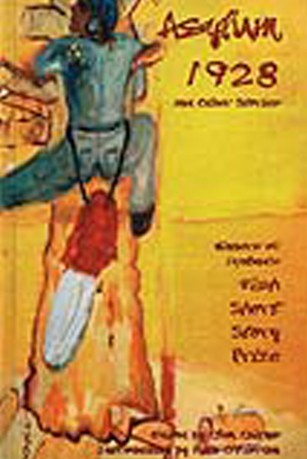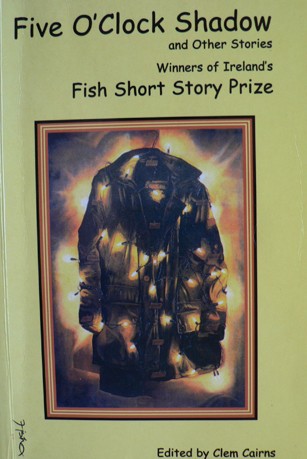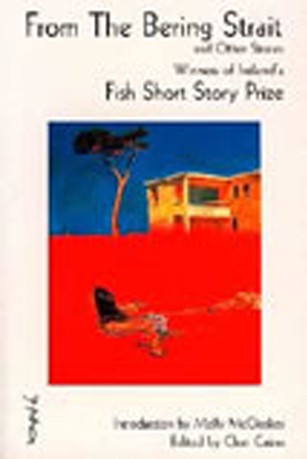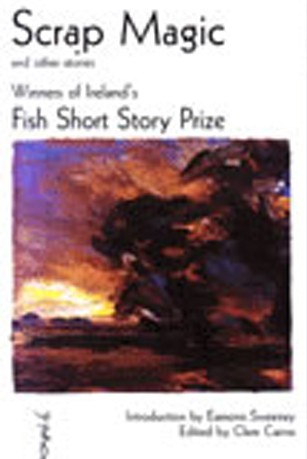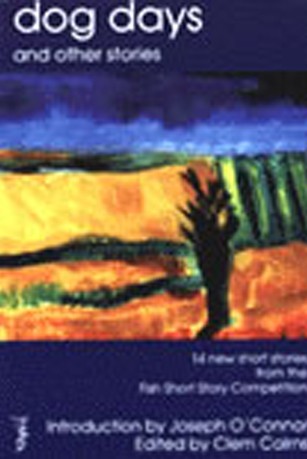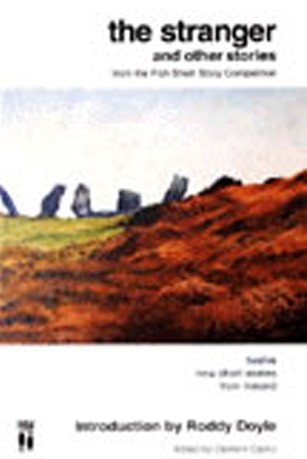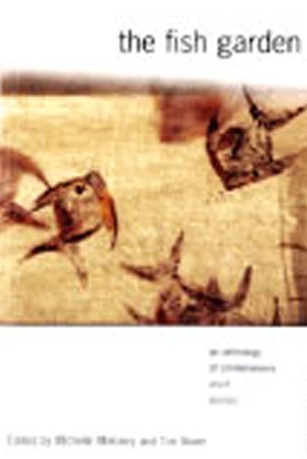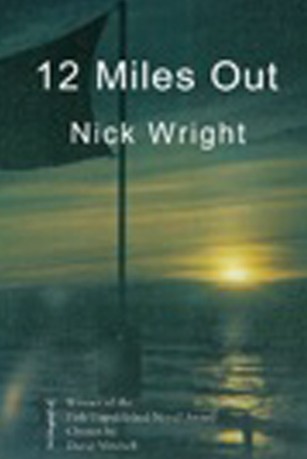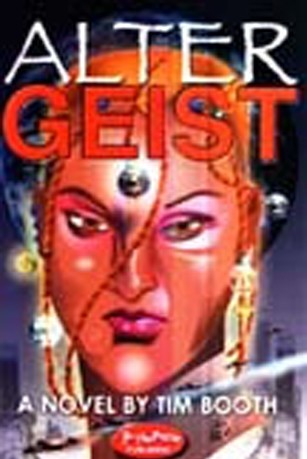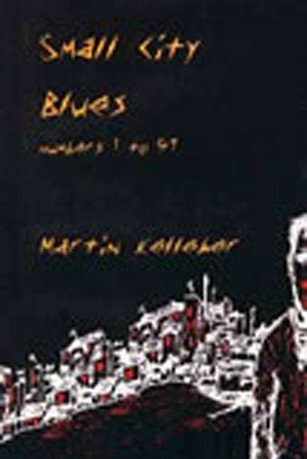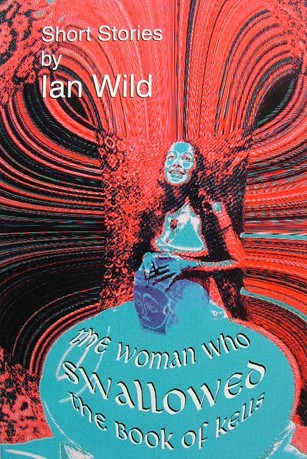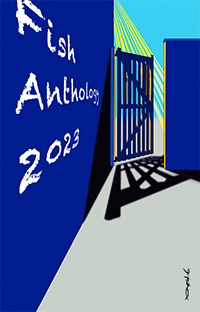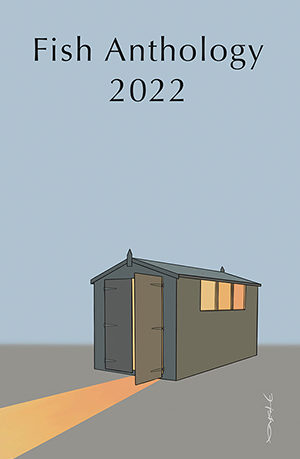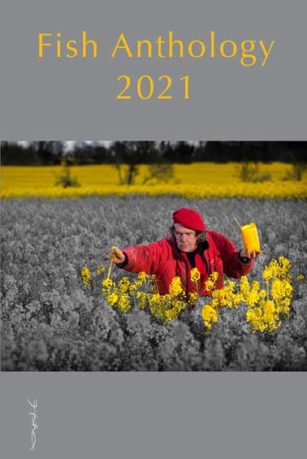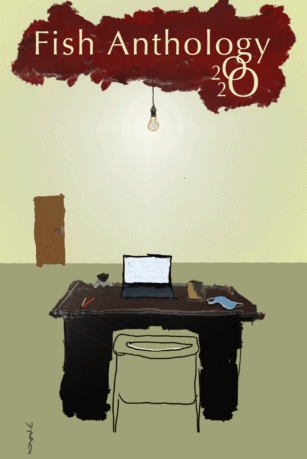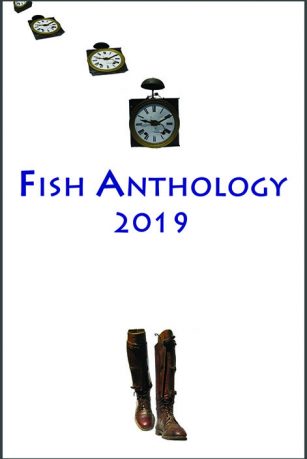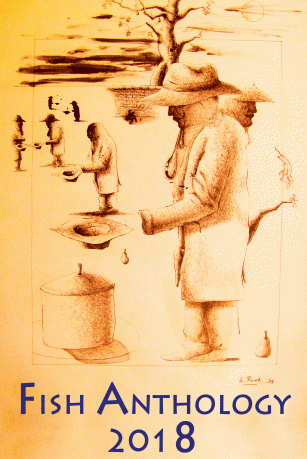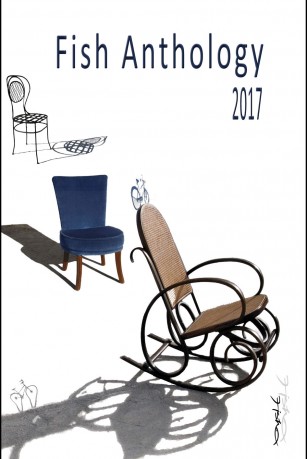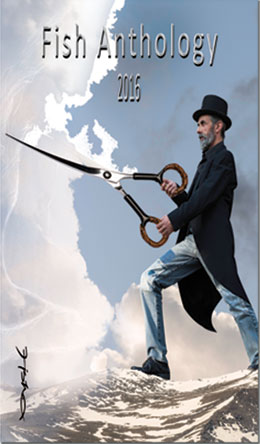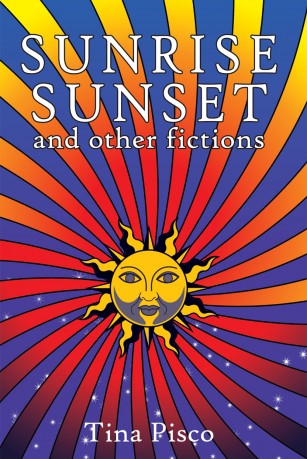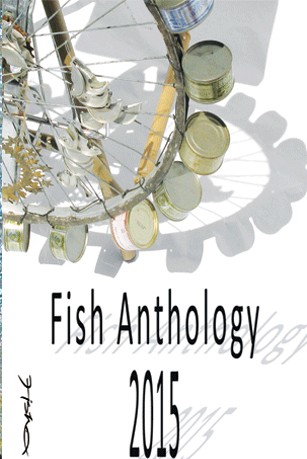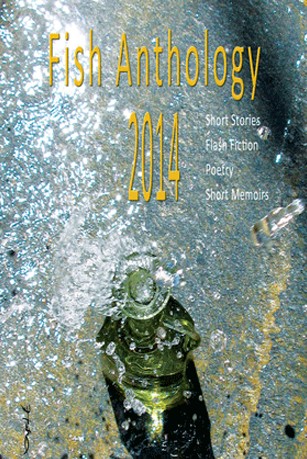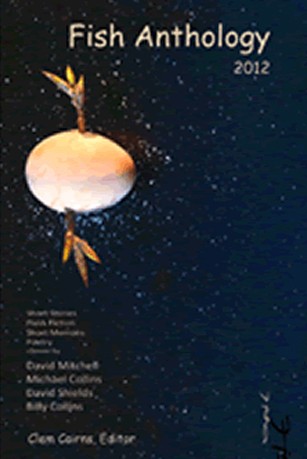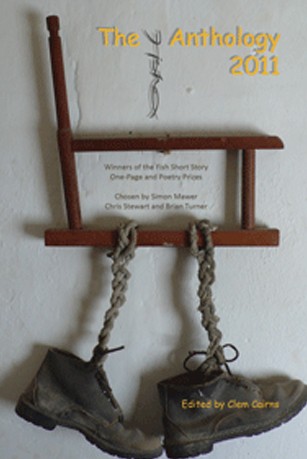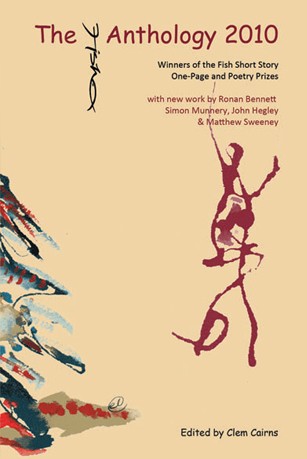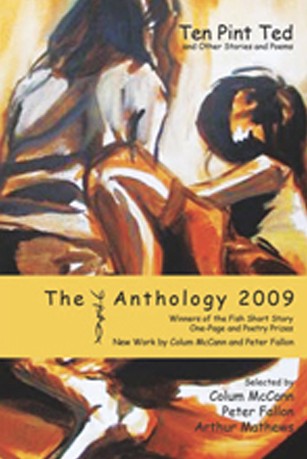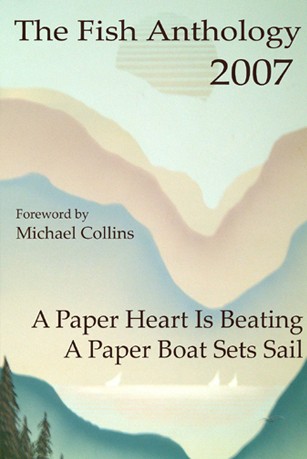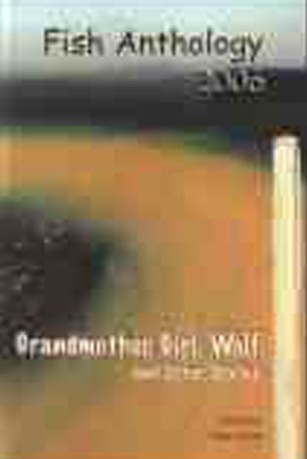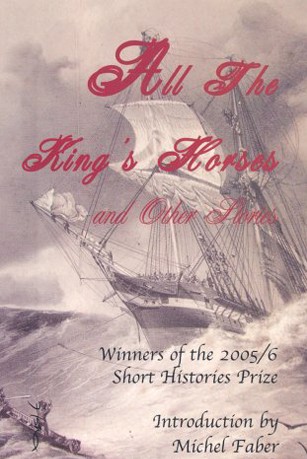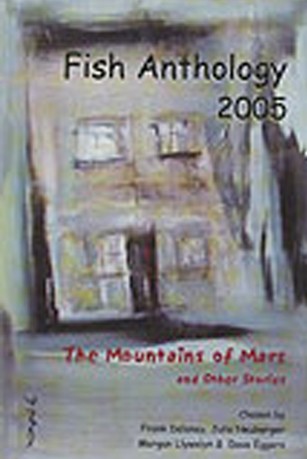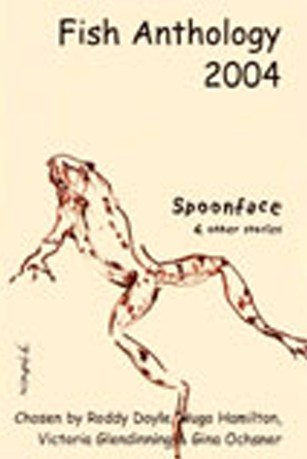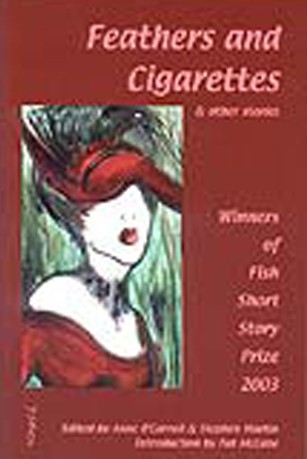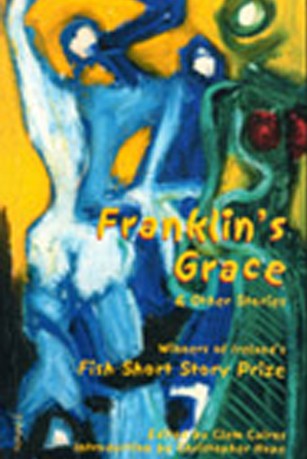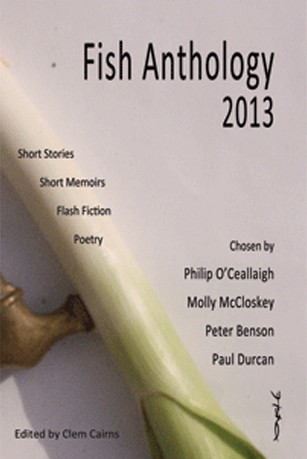
Fish Anthology 2013
ISBN: 978-0-9562721-5-7
Fish Anthology 2013 –
SELECTED BY:
Philip O’Ceallaigh ~ Short Story
Molly McCloskey ~ Short Memoir
Peter Benson ~ Flash Fiction
Paul Durcan ~ Poetry
Read the winning short memoir – Luscus by Maureen Boyle.
Introduction by Peter Benson
We all start somewhere. A bridge builder looks at the river, a fisherman checks the tide, a thief waits by a window. And a writer stares at the wall, waits for the first word, writes it down and then waits for the next. Sometimes the words comes quickly, sometimes they come slow, but the start is usually the most difficult thing. I say usually, for when the work is finished (is it ever finished or just simply abandoned?) the writer is faced with the question of what to do next. Do you put the work in a drawer and forget about it? Show it to your friends in the hope that they won’t be too rude? Confess your faults and hide in a cupboard? Look for a publisher? Enter it in a competition?
If you choose either one of the final two options, you’re faced with a daunting prospect. Who do you approach? How do you approach them? Will your submission be read? And if you find a sympathetic ear, how committed are they to publishing new work of the highest standard, and getting it out to the widest possible audience?
The winners of Fish Publishing’s 2013 Writing Contests made a wise decision, because Fish is that rare beast; a publisher with its priorities in the right order. The writing comes first, the bottom line comes last. And sandwiched between is an eye for the innovative, the inventive and the extraordinary.
The Fish approach is simple – keep it inclusive, international and accessible, and give writers the opportunity to express themselves in whatever way they choose. Roddy Doyle put it best when he said “Fish is an open door that’s inviting writers to walk through it. It has to be encouraged, celebrated, congratulated”. The writers in this latest anthology have walked through that door and now, hopefully, are walking down the road to further success, pleasure and fulfilment.
Fish Anthology 2013
Contents
SHORT STORIES |
|
|
The Nut Machine |
Sally Franicevich |
|
Something Pretty Something Nice |
Elaine McCluskey |
|
One for Hello, One for Goodbye |
Jacqueline P. Haskell |
|
In Their Song |
Kirstin Zhang |
|
Get, Get Over It |
David Lewis |
|
A Sense of Obligation |
Jennifer Bailey |
|
A Terrible Business |
Katya Maddison |
|
Theft of Services |
Robin Samu |
|
Thunderhead |
Monica Garvey |
|
Misappropriation |
Lucy Maxwell Scott |
|
FLASH FICTION |
|
|
Jennifer’s Piano |
Ken Elkes |
|
No |
Katie M. Zeigler |
|
Preschool |
Ken Taylor |
|
Ruminant |
Carol Caffrey |
|
Sisyphus and the Black Holes |
Ken Elkes |
|
A Wee Pink Shirt an’ All |
Margaret Sinclair |
|
Aftermath |
Cathy Leonard |
|
Da’s Belt |
Joe Walsh |
|
Dexter’s Lover |
Lindsay Stanberry-Flynn |
|
Rocky |
Claire Brown |
|
SHORT MEMOIRS |
|
|
Luscus |
Maureen Boyle |
|
Collapse |
Saffron Marchant |
|
World Without End |
Angela Finn |
|
Ashes |
Elisabeth Winkler |
|
Then and Now |
Pip Newling |
|
What it is Like in Words |
e.g. Jönsson |
|
The Visit |
Susan DuMond |
|
Dorchester Park, Drumming Our Way to the Future |
Orla McAlinden |
|
The Gift |
Bo Niles |
|
Spaghetti a Cacio e Pepe |
Barry Troy |
|
POETRY |
|
|
Against Forgetting |
Andy Kissane |
|
The Secret |
Wayne Price |
|
Loyalties |
Wayne Price |
|
Tangle |
Ginny Lowe Connors |
|
We Just Want To Get To Know You |
Mary Anne Losee Yates |
|
On Coolnamona Bog |
Frank Farrelly |
|
Winter Nuptials |
Noel Monahan |
|
The Apple Tree |
Dana Robbins |
|
The Leg Shaver’s Convention |
David H. W. Grubb |
|
Summer’s End |
Breda Wall Ryan |
|
BIOGRAPHIES
|
Extract from winning Short Memoir –
Luscus by Maureen Boyle
The eyes are lined neatly in wooden trays. They are laid in grooves according to colour and there seem to be hundreds of them staring blind off velvet lining. The velvet is deep purple – as though they’ve been laid there bleeding – but that is a fantasy and the velvet may be too. It was, after all, a National Health clinic in the Royal Victoria Hospital in 1966 but my memory of it is blurred and mixed with winter darkness and the sense of a bazaar. My parents have taken me first to the giant Woolworth’s store in the centre of Belfast to buy me a bright yellow rubber duck as a beacon of small light in my hands, distraction from the ordeal ahead and whether it is because this is my first remembered experience of looking out on the world with only half the light I’d had until then – all of that first trip to Belfast and to the clinic, is shrouded in the colours of the dark: of rich mahogany wood, of the hunched Victorian corridors of the children’s hospital, of shops with wooden counters and sweets in wood-cornered vats like coloured fish you had to scoop out into little brown bags for weighing; of dark polished doors and of rain.
We were there to find me an eye and the man who would do this was Mr Lennox. Apart from the trays of eyes, I remember little of that first visit but I would come to know his method very well over the next twenty years and would miss it when he finally retired. He would begin by washing his hands very thoroughly. And then he would simply sit and look at my one good eye, staring into it as if hoping to find a secret: the secret of its precise colour, of the size of the pupil, of the iris, the shades of the white, the shape of the eye and then the choosing would begin and that is where the perfectly-organised trays came into play. He would begin to scan the strange spectrum – leaving the tray of browns that had at one side a disconcerting row of pink albino eyes, and the tray of greens and go instead to blue – the colour of my eyes and of my family’s. He would gather up a range of them, like a boy lifting coloured marbles, and hold them, one at a time, not initially where my empty socket was, but at the side of the good eye, the better to do the matching. And it seemed to me that the movement of his fingers, deftly moving the first eye chosen, back into his palm and another forward between thumb and forefinger, was done like a conjuring trick – a version of the one where an uncle takes a coin from the child’s nose or its ear – this kindly uncle was going to pluck me back an eye from his magic box of them.
We are here because I have recently had an enucleation – my left eye removed entirely after an accident. The word comes from ‘nuclear’ which means ‘kernel’ – the removing of the seed from the kernel – the eye thumbed out like a Brazil nut from its shell. I’ll come to know these words too in the months and years ahead – the socket – like pocket – from which the eye has slipped, been picked; the sulcus, from the furrow of a plough, for the little groove between eyelid and eyebrow. I remember nothing of the enucleation but I do remember the day I lost my eye – an odd idea – as if I’d been careless and left it somewhere or dropped it while playing.
My parents were building an extension. It was the early sixties, when people built their own houses or did things to them and we knew about plans and permissions. The builder was from Strabane. We lived outside the village of Sion Mills, in County Tyrone, a Mill village where my mother grew up, in a house on the Melmount Road in the townland of Liggartown and my mother and father were replacing the tiny scullery, which would then become the ‘back kitchen’, with a big light kitchen that would have a massive orange formica table, around which we would all sit on high stools and a divider of shelves made of exotic bamboo for ornaments. The sink would face the road, the main road between Derry and Omagh, and its big picture window would allow my mother to look out on the world as she did her chores, to see the buses passing at their regular times and later the soldiers set up check-points on the corner and beyond to the fields, the river and the mountains.
On this day my sister, who is younger than me, is playing with me in the garden – there is a vast uncultivated meadow behind where the vegetables grow – it is a country site and too big for my father and grandfather to tend – where we like to play safaris, imagining ourselves ‘lost in the jungle’, when in fact we are hiding behind overgrown gooseberry plants and under the umbrella leaves of the wild rhubarb. But it begins to rain and so we take shelter in the garage which contains the overspill of the family house and good things to play with. In later years, though I doubt it was ever said, I always saw what happened subsequently, as carrying a moral message of obedience – always do what you are told – my mother having called us in out of the rain – meaning come in to the safety of the house. Instead we go to the garage – where we are not really supposed to play because of my father’s tools and garden weed-killers – but I love the smell of creosote and the jam jars my father screws by their lids to shelves to hold all his different nails and twine. We are playing with umbrellas in there. My parents have a print of Renoir’s ‘Les Parapluies des Cherbourg’ in our living room – its colours all the greys and blues of Parisian rain. The woman in the front of the picture though looks dry and carries an empty basket lined dark like a gaping hole. A little girl stands by with a hoop. The rain of this day is green in my mind, and rust-coloured from the gravel of the drive, as it runs down the slight slope from the garage, running down the fields in front of the house and down into the Mourne River. But we are dry inside the garage and the rain is spectacle through the open doors – like the moment in White Christmas where the barn doors are opened behind so that the scenery is suddenly real. There is an old white umbrella which I think may have been from my mother’s wedding, it has a frill and it seems sumptuous and it too is forbidden for play because of the danger of its tip. And that day also in the garage is the builder’s equipment, stored there for the weekend. There is a step-ladder. My little sister climbs it to the top. I am underneath looking directly up at her. There is a trowel – from the Old French word ‘truele’ – ‘a small tool for spreading plaster or mortar’ from the Late Latin ‘truella’ – ‘small ladle, dipper’ –‘ a stirring spoon, a ladle, a skimmer’.
* *
It is a Saturday. I know this because my father is at a cricket match. I remember the imprint of one of my mother’s tea towels – as though it were a phantom imprint on the lost or losing retina – like the checkered cloth marks that were burned into Hiroshima victim’s skin. The tea towel, white with red stitching, is held to the eye from the moment I run into the new kitchen screaming, held by my mother, all the way to Derry in my uncle’s small, wine-coloured Mini car, my uncle who is called to take me to hospital in Altnagelvin in Derry. I think I remember the surgeons in green scrubs and the panic. I think I remember being wheeled in a high-sided cot or bed. I don’t remember pain. They remove the whole eye.
(Complete Memoir in the Fish Anthology 2013.)


